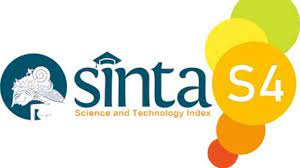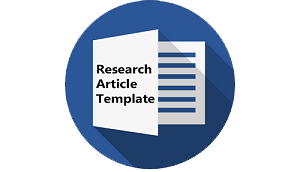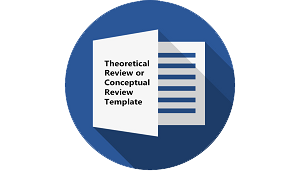Implementation of the Merdeka Curriculum (IKM) in Enhancing Students’ Autonomy and Critical Thinking Skills at SDN Suci Kasemen, Serang City
DOI:
https://doi.org/10.30957/ijoltl.v9i2.808Keywords:
Autonomy, Basic education, Critical thinking, Merdeka Curriculum, Project-based learning.Abstract
This study aims to analyze the implementation of the Merdeka Curriculum in enhancing student autonomy and critical thinking skills at SDN Suci Kasemen Kota Serang. Employing a qualitative approach with a case study method, data were collected through in-depth interviews, participatory observation, and documentation. The findings indicate that project-based learning, which is the core of IKM, effectively enhances student autonomy in taking initiatives and being responsible for their learning process. Furthermore, students' critical thinking skills develop through information analysis, logical argumentation, and data-driven problem-solving. However, challenges in implementing Merdeka Curriculum include teacher readiness, limited supporting facilities, and inadequate parental involvement. This study emphasizes the importance of teacher training, resource strengthening, and collaboration among schools, parents, and the government in supporting the successful implementation of Merdeka Curriculum. With the right strategies, the Implementation of Merdeka Curriculum has the potential to become a crucial instrument in developing students' skills in 21st-century.
Downloads
References
Anggito, A., & Setiawan, J. (2018). Metodologi penelitian kualitatif. CV Jejak (Jejak Publisher).
Aqodiah, A. (2024). KURIKULUM MERDEKA: LANGKAH MENUJU PENDIDIKAN YANG BERFOKUS PADA KREATIVITAS DAN KEMANDIRIAN DI SEKOLAH DASAR NEGERI. Ibtida’iy: Jurnal Prodi PGMI, 9(2), 15–24.
Hartini, A. (2017). Pengembangan perangkat pembelajaran model project based learning untuk meningkatkan kemampuan berpikir kritis siswa sekolah dasar. ELSE (Elementary School Education Journal): Jurnal Pendidikan Dan Pembelajaran Sekolah Dasar, 1(2a).
Imanuha, W. (2016). Analisis faktor self-determination penggerak Kelas Inspirasi Malang. Universitas Islam Negeri Maulana Malik Ibrahim.
Karomatunnisa, A.-Z. A., Sholih, J. A. U., Hanifah, N., & Prihantini, P. (2022). Meta analisis model pembelajaran project based learning dalam meningkatkan kemampuan keterampilan abad 21. Jurnal Pendidikan Sosiologi Dan Humaniora, 13(2), 522–528.
Nartin, S. E., Faturrahman, S. E., Ak, M., Deni, H. A., MM, C. Q. M., Santoso, Y. H., SE, S., Paharuddin, S. T., Suacana, I. W. G., & Indrayani, E. (2024). Metode penelitian kualitatif. Cendikia Mulia Mandiri.
Nuraida, D. (2019). Peran guru dalam mengembangkan keterampilan berpikir kritis siswa dalam proses pembelajaran. Jurnal Teladan: Jurnal Ilmu Pendidikan Dan Pembelajaran, 4(1), 51–60.
Prasetiyo, M. B., & Rosy, B. (2021). Model pembelajaran inkuiri sebagai strategi mengembangkan kemampuan berpikir kritis siswa. Jurnal Pendidikan Administrasi Perkantoran (JPAP), 9(1), 109–120.
Purwowidodo, A., & Zaini, M. (2023). Teori dan Praktik Model Pembelajaran Berdiferensiasi Implementasi Kurikulum Merdeka Belajar. Yogyakarta: Penebar Media Pustaka, 65.
Qonita, A., Rahmawati, D., Robiansyah, F., & Adriweri, E. (2023). Problematika Guru dalam Menerapkan Kurikulum Merdeka Belajar pada Siswa Kelas I & IV SD Negeri. Terampil: Jurnal Pendidikan Dan Pembelajaran Dasar, 10(2), 204–220.
Ramadhan, W. (2023). Pembelajaran Berbasis Pendekatan Steam Melalui Project-Based Learning (Pjbl) Untuk Meningkatkan Literasi Sains Siswa Sekolah Dasar. Jurnal Ibriez: Jurnal Kependidikan Dasar Islam Berbasis Sains, 8(2), 171–186.
Rendi, R., Marni, M., Neonane, T., & Lawalata, M. (2024). Peran Logika Dalam Berfikir Kritis Untuk Membangun Kemampuan Memahami Dan Menginterpretasi Informasi. Sinar Kasih: Jurnal Pendidikan Agama Dan Filsafat, 2(2), 82–98.
Rofi’uddin, A. H., Susanto, G., Widyartono, D., Sultan, S., & Muzakki, H. (2022). Pengembangan Pembelajaran Berpikir Kritis-Kreatif Berbasis Blended Learning di SMA. Diglosia: Jurnal Kajian Bahasa, Sastra, Dan Pengajarannya, 5(2), 527–536.
Sabil, M. A., & Pujiastuti, H. (2023). Kurikulum Merdeka: Tantangan dan Peluang di Era Digital. Pendas: Jurnal Ilmiah Pendidikan Dasar, 8(3), 5033–5045.
Siregar, T., Wijaya, A., & Suparni, A. A. (n.d.). Analisis Pengembangan Implementasi Kurikulum Merdeka (IKM) di SMA Negeri 2 Padangsidimpuan.
Suhartono, S., Marlina, M., Suwandi, S., & Permana, D. (2024). Analisis Faktor Lingkungan Keluarga dalam Membentuk Kemandirian Belajar Siswa. Al-I’tibar: Jurnal Pendidikan Islam, 11(3), 232–241.
Thana, P. M., & Hanipah, S. (2023). Kurikulum Merdeka: Transformasi Pendidikan SD Untuk Menghadapi Tantangan Abad ke-21. Prosiding Konferensi Ilmiah Dasar, 4, 281–288.
Waruwu, M. (2023). Pendekatan Penelitian Pendidikan: Metode Penelitian Kualitatif, Metode Penelitian Kuantitatif dan Metode Penelitian Kombinasi (Mixed Method). Jurnal Pendidikan Tambusai, 7(1), 2896–2910. https://doi.org/10.31004/JPTAM.V7I1.6187
Zubaidah, S. (2016). Keterampilan abad ke-21: Keterampilan yang diajarkan melalui pembelajaran. Seminar Nasional Pendidikan, 2(2), 1–17
Downloads
Published
How to Cite
Issue
Section
License
Authors who publish with this journal agree to the following terms:
- Authors retain copyright and grant the journal right of first publication with the work simultaneously licensed under a Creative Commons Attribution-ShareAlike 4.0 International License that allows others to share the work with an acknowledgement of the work's authorship and initial publication in this journal.
- Authors are able to enter into separate, additional contractual arrangements for the non-exclusive distribution of the journal's published version of the work (e.g., post it to an institutional repository or publish it in a book), with an acknowledgement of its initial publication in this journal.
- Authors are permitted and encouraged to post their work online (e.g., in institutional repositories or on their website) prior to and during the submission process, as it can lead to productive exchanges, as well as earlier and greater citation of published work (See The Effect of Open Access).












